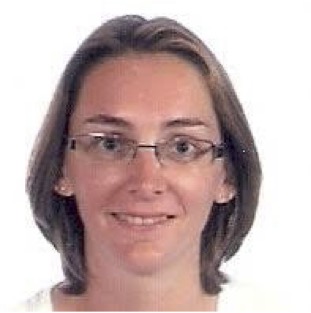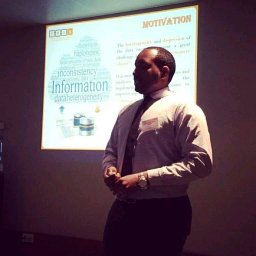The 3rd International Workshop
on Conceptual Modeling for Life Sciences


November 11th, 2022: the first articles extended from CMLS 2022 papers for BMC Supplements are being published these days! Check them out here:
The recent advances in unraveling the secrets of human conditions and diseases have encouraged new
paradigms for their prevention, diagnosis, and treatment. As the information is increasing at an
unprecedent rate, it directly impacts the design and future development of information and data
management pipelines; thus, new ways of processing data, information, and knowledge in health care
environments are strongly needed.
The third edition of the workshop aims to continue being a meeting point for Information Systems
(IS), Conceptual Modeling (CM), and Data Management (DM) researchers working on health care and life
science problems. It is also an opportunity to share, discuss and find new approaches to improve
promising fields, with a special focus on Genomic Data Management - how to use the information from
the genome to better understand biological and clinical features - and Precision Medicine - giving
to each patient an individualized treatment by understanding the peculiar aspects of the
disease.
From the precise ontological characterization of the components involved in complex biological
systems to the modeling of the operational processes and decision support methods used in the
diagnosis and prevention of diseases, the joined research communities of IS, CM, and DM have an
important role to play; they must help in providing feasible solutions for a high-quality and
efficient health care.
The COVID-19 pandemic has attracted increasing attention to the genetic mechanisms of humans and
viruses. CMLS may become an additional forum for discussing the responsibility of the conceptual
modeling community in supporting the life sciences related to this new reality.
This year – more than in the previous editions – we aim to welcome topics that have become of
particular interest for the general ER community: conceptual modeling for big data analytics and
AI-driven systems, particularly beneficial to life sciences disciplines.
The third edition of the workshop focuses on Conceptual Modeling as a means for facing the challenges that emerge when designing and developing systems for life sciences, focused on genomics and precision medicine. The workshop is not restricted to specific research methods; we will consider both conceptual and empirical research, as well as novel applications.
The topics of interest include, but are not limited to:
As we wish to stimulate more discussion in the ER community regarding the use of models for life sciences, we welcome also “discussion papers”, particularly related to the following topics:
The list of accepted papers for CMLS 2022:
We invite submissions of high quality papers describing original and unpublished results
regarding
any of the workshop’s topics of interest.
CMLS 2022 proceedings will be part of the ER 2022
Workshop volume published by Springer in the LNCS series.
The authors must submit manuscripts using the Springer-Verlag LNCS style for Lecture Notes in
Computer Science.
For style files and details, see the page http://www.springer.de/comp/lncs/authors.html.
The page limit for workshop papers is 10 pages.
Papers must be submitted as PDF files using EasyChair at https://easychair.org/conferences/?conf=cmls2022.
To ensure high quality, all papers will be thoroughly peer reviewed by the Program Committee.
Manuscripts not submitted in the LNCS style or having more than 10 pages will not be reviewed
and
thus automatically rejected.
The papers need to be original and not submitted or accepted for publication in any other
workshop,
conference, or journal.
Submission to CMLS 2022 will be electronically only.
The papers accepted to the workshop's last edition CMLS 2022, will be published within the Springer
volume
as per the usual tradition of the ER conference joint events (see last year's Advances in Conceptual
Modeling 2021).
In addition, they will be invited to submit a revised and extended version
for a post-conference supplement in the journal
BMC Bioinformatics
or a similar venue (e.g., BMC
Medical Informatics and Decision Making),
depending on the topic.
The authors of accepted papers interested in submitting an extended article to a BMC
supplement will need to fill, sign, scan and submit the supplement submission letter of
interest.
This document is important for us so we can know how many extended articles we will receive.
The authors can read the BMC Bioinformatics guidelines here and the BMC Medical Informatics and
Decision Making guidelines here.
There are no page limits for the BMC journals.
The articles can be submitted on the BMC Supplements website.
The submitted extended articles will go through two review phases.
In the first phase, the organizers of the CMLS 2022 workshop will serve as guest editors.
Some additional colleagues might be involved as additional guest editors, in case of high number of
submissions.
At the end of the first review phase, the guest editors will recommend the submitted extended
articles for acceptance or rejection,
and transfer them to the BMC journals' editor-in-chiefs who will take care of the second review
phase.
The BMC editor-in-chiefs can decide to confirm the guest editors' recommendations or to start a new
review phase (with new reviewers invited, new reviews, new requests, etc).
The BMC editor-in-chief will eventually make the final decision on the acceptance or rejection of
each extended manuscript.
Please note that, even if the guest editors suggest the acceptance for a specific paper, the BMC
editor-in-chief can still decide to reject it (this case is quite rare but it can still happen).
Deadline. Submission of extended articles for the BMC supplements: 20 December 2022.
Anna Bernasconi works as a researcher in Politecnico di Milano, within the “Data-driven Genomic Computing” ERC Awarded project (2016-2021), under the supervision of Professor Stefano Ceri. In 2015 she obtained a Master of Science in Computer Engineering from Politecnico di Milano and a Master of Science in Computer Science from University of Illinois at Chicago with a thesis on Formal Methods. Her research is on bioinformatics data and metadata integration methodologies to support complex biological query answering. Main expertise areas include conceptual data design, data integration, data cleaning, semantic web, data analysis; she is passionate about models and methods formalization.
Arif Canakoglu currently works as a data scientist at Policlinico di Milano; and he works mainly on the electronic health record of the intensive care unit's patients in the Lombardy region. He is leading the research with the support of the medical group, analyzing the life quality of the patients after the hospital discharge. Previously, he was involved in the "Data-driven Genomic Computing" ERC Awarded project (2016-2021), where he contributed to developing integration of heterogeneous genomic data and for developing computational methods for genomic applications. In 2016, he received his PhD on biomolecular knowledge data integration by using the modular schema data warehouse. His research interests include data integration and data driven genomic computing, big data analysis and processing on cloud computing, artificial intelligence applications. His main areas of expertise are heterogeneous data integration and data driven models and machine learning approaches in genomic, and big data processes, especially on cloud computing.

Ana León, PhD in Computer Science (2019, Universitat Politècnica de València), is also University Expert in Medical Genetics and Genomics by the Universidad Católica de Murcia. Her main research topics include Conceptual Modeling, Genomic Data Science, Explainable AI, Data Quality and Information Systems. Currently, she is researcher at the Research Center on Software Production Methods (PROS-UPV) where her research activity is focused on the use of conceptual models for the development of Genomic Information Systems, as well as the definition of a systematic process for the search, identification, load and exploitation of DNA variants in the context of Precision Medicine.

José F. Reyes R. is a researcher at PROS Research Center at Universitat Politècnica de València (Spain). He holds a Ph.D. in Computer Sciences (2018) from Universitat Politècnica de València (UPV, Spain), a MSc in Software Engineering, Formal Methods and Information Systems (2013) from UPV (Spain), a Diplomate of Analysts and Systems Designers (2011) and a University Degree in System Engineering (2010) from Universidad Central del Este (Dominican Republic). Currently, his main research activities are centered on the use of Conceptual Models for the development of Genomic Information Systems (GeIS). His main research interests include Conceptual Modeling, Genomic Data Science, Engineering Requirements, SE and Information Systems.
Pietro Pinoli (Dept. of Electronics, Information and Bioengineering - Politecnico di Milano).